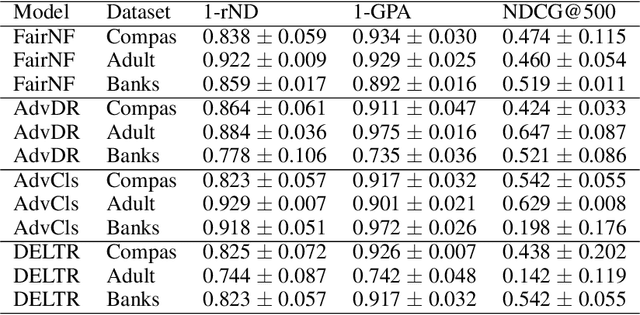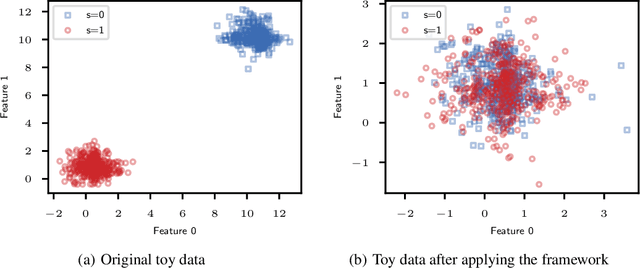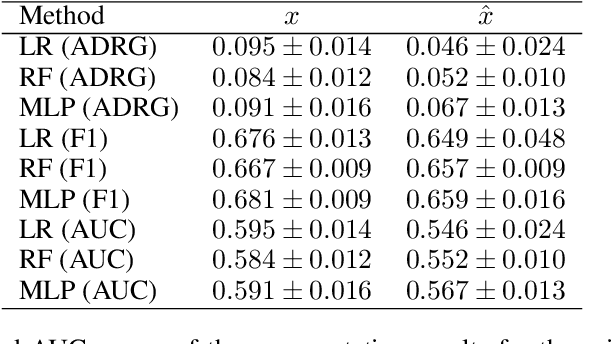Fair Group-Shared Representations with Normalizing Flows
Paper and Code
Jan 17, 2022


The issue of fairness in machine learning stems from the fact that historical data often displays biases against specific groups of people which have been underprivileged in the recent past, or still are. In this context, one of the possible approaches is to employ fair representation learning algorithms which are able to remove biases from data, making groups statistically indistinguishable. In this paper, we instead develop a fair representation learning algorithm which is able to map individuals belonging to different groups in a single group. This is made possible by training a pair of Normalizing Flow models and constraining them to not remove information about the ground truth by training a ranking or classification model on top of them. The overall, ``chained'' model is invertible and has a tractable Jacobian, which allows to relate together the probability densities for different groups and ``translate'' individuals from one group to another. We show experimentally that our methodology is competitive with other fair representation learning algorithms. Furthermore, our algorithm achieves stronger invariance w.r.t. the sensitive attribute.
 Add to Chrome
Add to Chrome Add to Firefox
Add to Firefox Add to Edge
Add to Edge